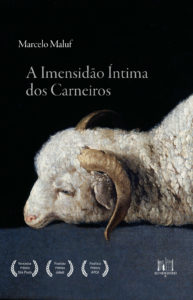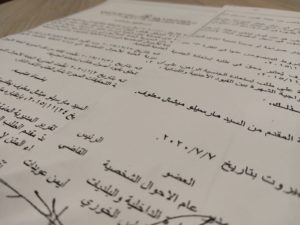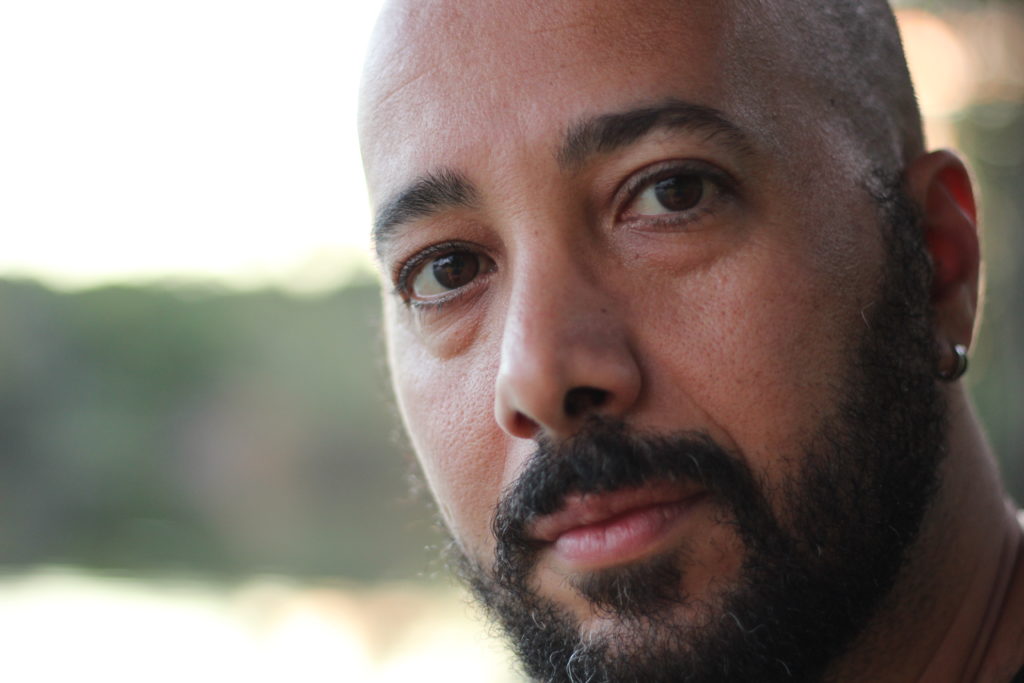São Paulo – One week after his father’s death, writer Marcelo Maluf (pictured above) received an unlikely inheritance from his uncle: A secret Marcelo’s grandfather kept about a tragedy in Lebanon in the early 20th century. According to his uncle Sami, Marcelo’s grandfather Assad had been sent to Brazil as a teenager by his father after witnessing the murder of his older brothers, who were hanged in their backyard by an Ottoman-Turkish army officer. For eight years, he mulled over that story, or what he calls his “accursed heritage,” wondering whether or not he should write about it. “If he kept it a secret, why would I reveal it?” he said to himself. On the other hand, it was a story that needed to be told; it was more than a family tragedy: It was the fate of many immigrants, the picture of a moment in world history and a fact that shaped much of what they, the Maluf family, became. In 2013, thanks to a funding program of the São Paulo State government (PROAC), Marcelo turned his legacy into a book. In 2015, ‘A Imensidão Intima dos Carneiros’ [‘The Intimate Immensity of the Sheep,’ in free translation] was born, winner of the 2016 São Paulo Literature Prize.

The first novel for Marcelo, who was already known for his children’s and youth books, put him in the spotlight, made him compared with other writers of Arab descent, such as Raduan Nassar and Milton Hatoum, and brought him closer to his origins. Because of the book, he even obtained Lebanese citizenship. “I met the Lebanese consul at a party, and he asked me if I was interested in becoming a citizen. I got interested and went for it,” he said. Until then, all he had in him of Arab heritage were some memories of his childhood in Santa Bárbara D’Oeste, in the countryside of São Paulo state, where he was born. Things such as the flavors of Arab cuisine – which he had to adapt ten years ago when he became vegan – and a punctual memory; the visit of cousin Rita in 1982, when he was eight years old. A little older than him and speaking only Arabic, she and her mother spent two months in Brazil, and he and Rita spent much time together. “I remember going into the room and hearing them speaking in Arabic to my grandmother, and I thought it was very funny; that sound made me laugh.”
After Rita left, they continued to exchange letters. They sent cassette tapes from Lebanon – which he calls spoken letters – in which it was possible to hear the sound of bombs from the Lebanese Civil War (which lasted until 1990) in the background. “But they said they were safe, in a bomb shelter, and even invited them: Come visit us in Beirut!” Marcelo has already been to Abu Dhabi for a literary festival, but he has never been to Lebanon – a plan yet to come true.

The Lebanese grandfather, around whom the story of ‘A Imensidão Intima dos Carneiros’ revolves, died before he was born. It is a mythical figure, what he calls a “presence of absence,” who has always had tremendous weight in his life. Assad was married to Karima Chacur, of Syrian descent. They met in Santa Barbara D’Oeste. He lived with his grandmother until he was about ten years old. The book, which is out of print and expected to be re-released in 2023 by Faria e Silva publishing house, is not a biography of his grandfather, nor even an autobiography of Marcelo, but a mixture of all of these, with historical references and gaps filled with a lot of imagination. “Everything I didn’t know about the true story I made up, inspired by the Arabian Nights, which is always a reference for me.”
Marcelo had exceptional help filling in some gaps who was also his beta reader of the work when it was under construction: His mother, Cleusa. “She was a bridge because she actually met my grandfather, lived with him, told me about his personality, sometimes very funny, sometimes very nervous, with his outbursts.” When Marcelo was finishing writing the book, his mother fell ill. When he put the full stop, she passed away. She didn’t get to see the finished book but was amused on the phone when Marcelo called to read some passages. Uncle Sami, the one who entrusted him with the tragic story of his great-uncles, who in turn learned about the story while traveling with his father, a peddler, through Brazil, also never saw the finished book.
Drummer, teacher, writer: A creator
When he left the countryside, Marcelo played drums, had a band, and composed music. He could have become a musician. But he was also involved in children’s education and studied to become a teacher. First, he obtained an undergraduate degree in art education from the Arts Institute of the State University of São Paulo (UNESP) and later a master’s degree, also from UNESP, in visual arts. Marcelo taught classes, worked in museums and moderated visual arts lectures. It was all fascinating, but he wasn’t done yet. When he released his first children’s book, ‘Jorge do Pântano Que Fica Logo Ali’ [‘Jorge from the Nearby Swamp,’ in free translation], in 2008, he understood his way of working with children’s education would be through the stories he created. Then came works books like ‘Meu Pai Sabe Voar,’ [‘Dad Knows How to Fly,’ in free translation] written in partnership with his wife, Daniela Pinotti, and others of the genre. In 2012, he released his first short story compilation, Esquece Tudo Agora [‘Forget it All Now,’ in free translation].

In 2023, in addition to the relaunch of the novel, Marcelo will release three children’s books: ‘O Coração Que Saiu Pela Boca’ [‘The Heart Out through the Mouth,’ in free translation]; ‘O Mistério de Todas as Coisas’ [‘The Mystery of All Things’], a poetry book for children, and, again with Daniela, ‘A Odisseia do Spray Grego’ [‘The Greek Spray Odyssey’] – this one motivated by a greek spray bottle the couple found while walking along the beach, on Cardoso Island (off Sao Paulo state’s coast). “We began to imagine the entire journey of that spray from Greece to Brazil,” said the author. A new novel will also be printed next year: ‘Os Últimos Dias de Elias Ghandour’ [‘The Last Days of Elias Ghandour,’ in free translation]. Still immersed in his Arab roots, Maluf created a character, Elias, who inherits a fabric store on (shopping street) 25 de Março when his father dies in the 1960s and gives up on his dream of becoming an actor. He becomes successful in business, marries, and fathers a child but lives unhappy because of the choices he (didn’t) make. One day, he meets a Lebanese man with whom he falls in love but loses his boyfriend in the Lebanese Civil War. The story is told by himself, already an older man, from a ranch in Joanópolis, in the countryside of São Paulo state.
Amidst so many ideas and productions, Marcelo still thinks about writing about Karima, his Syrian grandmother, on the other Arab side of the family. For him, it would be a way of repairing the invisibility of women in ‘A Imensidão Intima dos Carneiros.’ “It is a patriarchal book because, in fact, this is a patriarchal society, especially the Arab one. But I also want to tell the story of these women,” he promised himself and his readers who have just read these last lines.
Read more on Literature and Arabs:
New publisher Editora Tabla focuses on Arabic titles
Brazilian author selected for writer’s fellowship in Dubai
*Special report by Débora Rubin for ANBA
Translated by Elúsio Brasileiro




